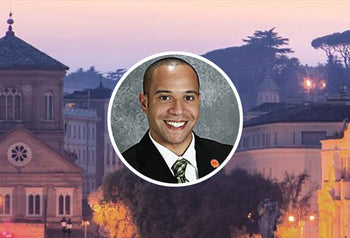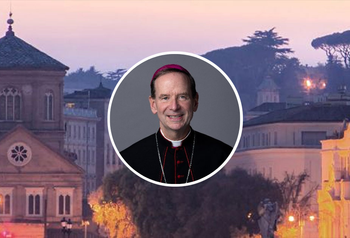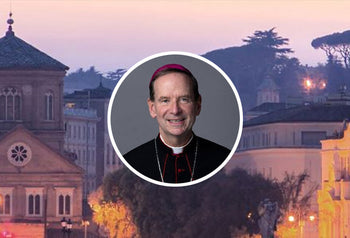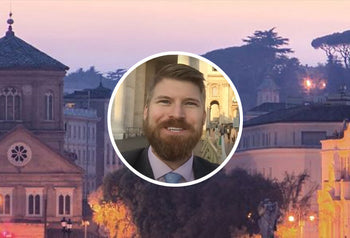

What the Final Document Looks Like
Featuring Joel Stepanek
About the Author
Joel Stepanek is the director of resource development at Life Teen and the author of the forthcoming book, Chasing Humility.
The Synod on Young People, the Faith, and Vocational Discernment was complicated (from the outside looking in) and at first glance, the document could seem that way as well. It’s long—clocking in at 167 paragraphs—and rich, covering a variety of themes and exploring different ministerial approaches. However, if we approach the document with a spirit of humility and open-mindedness we can tackle it. We can approach the young people we work with in that same spirit: with an openness, a willingness to listen, and a desire to truly learn from what they have to share. We’ll look at both what the final document looks like and how to approach young people with a humble spirit and heart as we listen to and dialogue with them.
You can read the full document here.
Humility in Listening
Synod on Young People, the Faith, and Vocational Discernment
by Joel Stepanek
“Listening is an encounter in freedom, which requires humility, patience, readiness to understand, and a commitment to formulate the answers in a new way. Listening transforms the hearts of those who do it, especially when it takes place with an interior disposition of harmony and docility to the Spirit. So it is not just a gathering of information, nor is it a strategy for achieving a goal, but it is the manner in which God himself relates to his people.” (6)
A friend was talking to me and I was, at the same time, looking at something on my phone. I don’t remember what I was looking at, and I don’t remember what my friend was saying. He called me on it, “Did you hear anything I just said?” I was embarrassed, I was nodding along as he was speaking but didn’t listen to a word he said. I was completely distracted.
I was too self-absorbed in that moment to really listen. When it comes to listening, I know I need to grow. Sometimes I am distracted and I don’t pay attention to the person who is speaking with me, like my friend. Other times, I anticipate what the other person is about to say so I begin to formulate my response before they finish. I end up missing the mark on the conversation because I jumped ahead instead of being present in the moment.
We are being culturally conditioned to be poor listeners. We consume media in small segments, throw out opinions without really listening to the other side, and are continually distracted. Yet, in all of this, we desire to be listened to—we want someone to really hear us when we speak.
In ministry, listening takes place in two forms and both require humility. The first is listening to the promptings of the Holy Spirit as we serve. The second is listening to the people that we serve with the same attentiveness. Both require humility in setting ourselves aside and being present. In the case of listening to the Holy Spirit, we put aside our plans, agendas, and the ways that we are self-seeking so that we may honestly pray the words that Christ taught us, “Thy will be done.” In listening to others, we set aside our desire to have the best opinion to offer, the right words to say, or the best counter argument and instead choose to be present to the person speaking and really listen to not just what they say, but the way in which they say it.
That’s why listening to the Spirit is necessary if we want to really listen to and accompany others, especially young people. Fostering an awareness of the Holy Spirit’s promptings and a readiness to follow them empowers us to discern the words of a conversation with a young person. Instead of waiting to offer the right advice (or just get through the conversation), we ask the Spirit to reveal more than the meaning of the words the person in front of us is saying, but the very heart of that person. In doing so, we encounter both who that person really is and Christ within him or her. Those moments become transformative, because any encounter with Christ is transformative.
I’ve become incredibly aware of how distracted I am in conversations—either by my own agenda or by the world around me—and that awareness has allowed me to become more present. If we want to accompany young people on the journey of discipleship, this attitude is not simply an option, but an absolute necessity.
Download this article as a PDF here.
Related Books & Resources
Explore Series

Join Ave Explores, It’s Free
Sign up for Ave Explores to explore everyday faith for everyday Catholics with articles, videos, podcasts, social media exclusives, surprising facts, and more. Enter your email address below to become a part of this exclusive community.
Revise text to read: Don't forget to follow Ave Maria Press and hashtag #AveExplores for all the extra content.



























